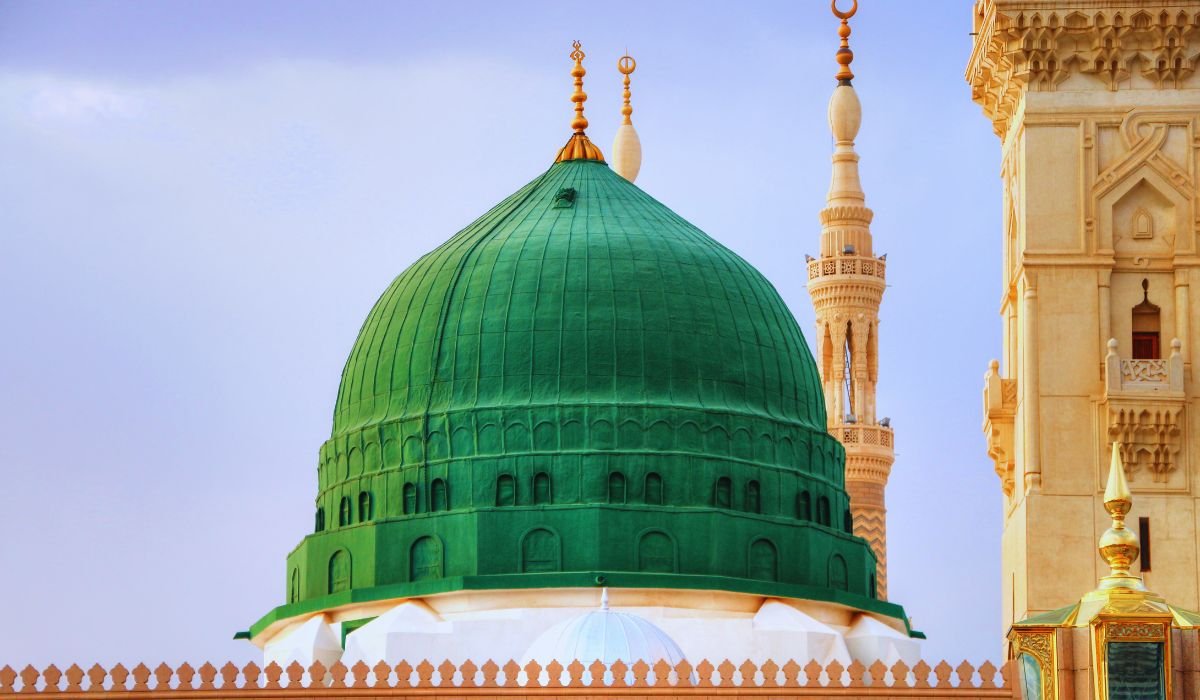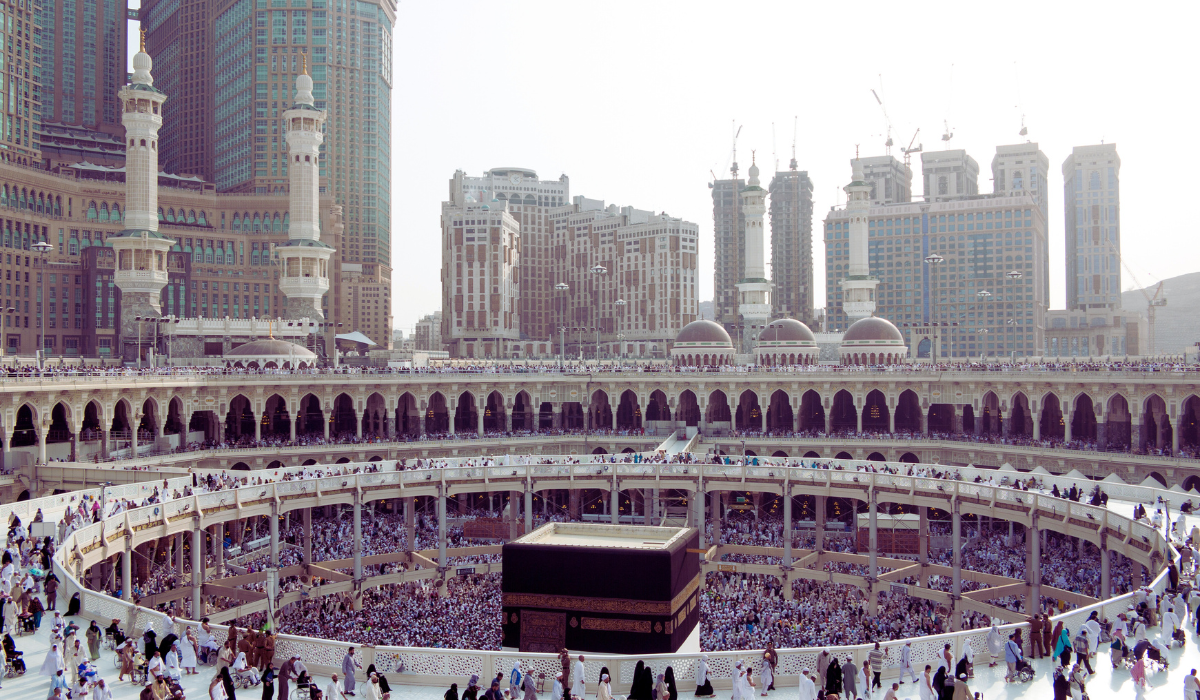Hajj in Islam: A Pillar of Faith and Spiritual Devotion
Hajj is a cornerstone of the Islamic faith and certainly one of its five important pillars. For Muslims worldwide, it’s more than just a nonsecular duty, it’s a deeply nonsecular adventure that symbolizes devotion, team spirit, and submission to Allah. But what is Hajj in Islam, and why is it so significant? In this blog, we will discover the definition of Hajj in Islam, the rituals involved, and the profound spiritual meaning of Hajj for Muslims.
What is Hajj in Islam?
Hajj, derived from the Arabic word “to mean a journey,” is a pilgrimage to the holy metropolis of Mecca in Saudi Arabia. It is performed annually during the Islamic month of Dhul-Hijjah. Every Muslim who is bodily and financially able to undertake it at least once in their lifetime is required to make the pilgrimage.
The meaning of Hajj is going past bodily tour. It is a demonstration of harmony among Muslims, as pilgrims from diverse backgrounds come together in worship. Dressed in easy, white garments called Ihram, they stand as equals before Allah, putting aside differences of wealth, nationality, and status.
The Meaning of Hajj in Islam
Hajj isn’t merely a physical act, it’s a deeply religious revel designed to purify the soul and support faith. Muslims can mirror their lives, look for forgiveness, and renew their commitment to Allah’s instructions.
The rituals of Hajj commemorate the moves of the Prophet Ibrahim (A.S) and his family, who exemplified unwavering religion and submission to Allah. Each act done at some point during Hajj carries profound symbolism which means, serving as a reminder of one’s responsibility to Allah and humanity.
What is in Hajj? The Key Rituals of the Pilgrimage
Hajj involves a series of sacred rites performed over several days. Here is an outline of the main rituals:
- Ihram
Before entering the holy city of Mecca, pilgrims don the Ihram, a simple white garment symbolizing purity and equality. In this state, pilgrims must avoid specific actions and focus solely on their spiritual journey. - Tawaf
Upon reaching the Grand Mosque in Mecca, pilgrims perform Tawaf, walking around the Kaabah seven times in a counterclockwise direction. This act symbolizes the unity of believers worshiping the One God. - Sa’i (Walking Between Safa and Marwah)
Pilgrims walk back and forth between the hills of Safa and Marwah seven times, reenacting Hagar’s search for water for her son, Ismail. This ritual reminds Muslims of perseverance and trust in Allah. - Day of Arafat
On the 9th of Dhul-Hijjah, pilgrims of Hajj gather at the plain of Arafat to pray and ask for Allah’s forgiveness. This day is often considered the pinnacle of the Hajj experience. - Muzdalifah and Stoning of the Devil
After sunset at Arafat, pilgrims move to Muzdalifah to collect pebbles. The next day, they perform the symbolic stoning of the devil at Mina, rejecting evil and reaffirming their commitment to Allah. - Animal Sacrifice
As part of Eid al-Adha, pilgrims sacrifice an animal, commemorating Prophet Ibrahim’s willingness to sacrifice his son in obedience to Allah. The meat is distributed to the needy, emphasizing charity and generosity. - Final Tawaf
Before leaving Mecca, pilgrims perform another Tawaf as a farewell act of worship, marking the completion of their Hajj.
Hajj Islam Definition: A Journey of Faith and Renewal
The Hajj Islam definition encompasses more than just the physical journey to Mecca. It is an act of obedience, submission, and humility before Allah. For many Muslims, Hajj represents a once-in-a-lifetime opportunity to cleanse their souls, strengthen their faith, and gain Allah’s forgiveness and mercy.
Hajj also emphasizes the principles of equality, unity, and charity. Pilgrims experience a sense of solidarity as they pray, eat, and perform rituals together, regardless of their background or status.
Why is Hajj Important in Islam?
- Fulfillment of a Pillar of Islam
Hajj is one of the five pillars of Islam, making it an essential act of worship for every eligible Muslim. Performing Hajj signifies complete submission to Allah’s commands. - Spiritual Renewal
Hajj is a transformative experience that allows Muslims to seek forgiveness for past sins, gain spiritual clarity, and renew their commitment to a righteous life. - Commemoration of Prophetic Traditions
By performing the rituals of Hajj, Muslims honor the actions and sacrifices of the Prophet Ibrahim, his wife Hagar, and their son Ismail. These acts serve as timeless lessons of faith, patience, and devotion. - Unity of the Ummah
Hajj brings together Muslims from all over the world, fostering a sense of unity and brotherhood. The pilgrimage highlights the universal message of Islam and its emphasis on equality. - Immense Rewards
According to Islamic teachings, a Hajj performed with sincerity and devotion can result in the forgiveness of sins and a fresh start, as pure as the day one was born.
Preparing for Hajj: Key Considerations
Performing Hajj calls for careful guidance, each spiritually and almost. Here are some recommendations for potential pilgrims:
- Spiritual Preparation: Spend time in prayer, read the Quran, and replicate the significance of Hajj in Islam.
- Physical Fitness: Hajj involves physical exertion, so make certain you are in good health and practice on foot for prolonged distances.
- Financial Planning: Hajj may be highly priced, so maintain and plan for charges related to adventure, accommodations, and different necessities.
- Educational Readiness: Learn about the rituals and significance of Hajj to perform them effectively and with information.
Conclusion
Hajj is a good deal greater than a pilgrimage, it’s a profound act of worship that strengthens a Muslim’s faith and connection with Allah. From the Hajj Islam definition to its rituals and non secular importance, Hajj is a journey that transforms the hearts and souls that undertake it.
Understanding what is in Hajj and getting ready for this sacred revel ensures that every step taken in Mecca is packed with cause and devotion. For Muslims, Hajj is a reminder of their spiritual aim to live a life of religion, humility, and obedience to Allah, and to look for His eternal mercy and benefits.






